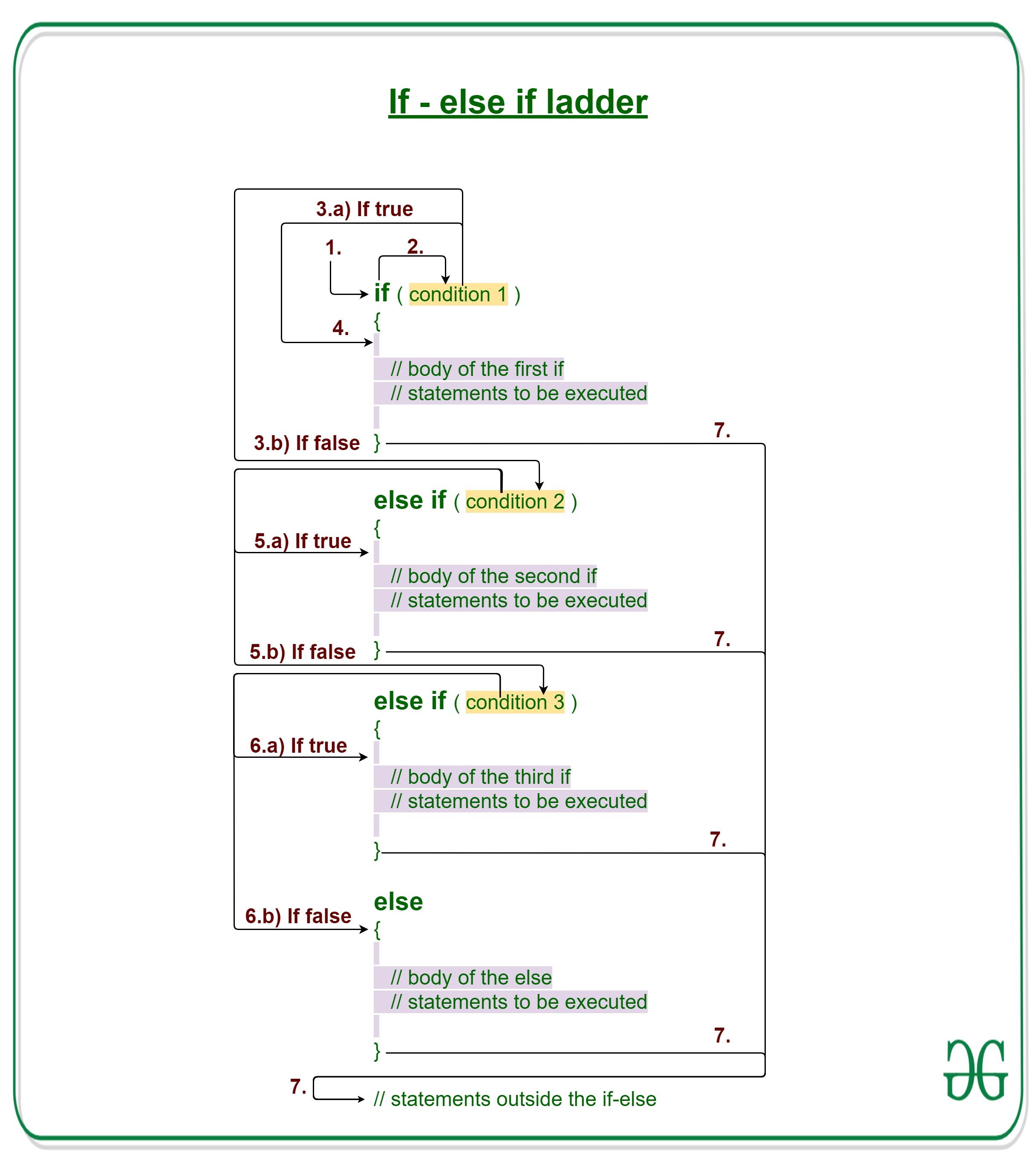Use the else statement to specify a block of code to be executed if the condition is false. In this tutorial you will learn: If, elif, else, then, fi. In this statement, we are comparing one to one. To do the reverse,.
The interpreter gives me a syntax error after the 'if' in 'else if' for a reason i can't seem to figure out. If a == '1':. #define double_else(code) else { code } } else { code } which allows you to write beautiful code like this: If(fileexists(file)) { contents = openfile(file);. If you need to add an else statement later on you should really change the unless to an if. It's just easier if it is already an if. If the logic inside the unless statement becomes. Python uses the if keyword to implement decision control. Python's syntax for executing a block conditionally is as below: Any boolean expression evaluating to true or false appears after. The experts in clean code advise not to use if/else since it's creating an unreadable code. They suggest rather using if and not to wait till the end of a method without real need. Use if for single use, else if if your checking for multiple things. As far as i know if else {} is. Else if is certainly not bad by itself, however else if combined with complex boolean expressions can lead to code where it's no longer clear which branch it exactly triggered when.
The experts in clean code advise not to use if/else since it's creating an unreadable code. They suggest rather using if and not to wait till the end of a method without real need. Use if for single use, else if if your checking for multiple things. As far as i know if else {} is. Else if is certainly not bad by itself, however else if combined with complex boolean expressions can lead to code where it's no longer clear which branch it exactly triggered when.
The Love Triangle That Rocked Ashly Aoky's World
Skirby's Nightmare: The Bombshell Revealed
HaleyNoppV Leaks: A Timeline Of Betrayal And Deception
